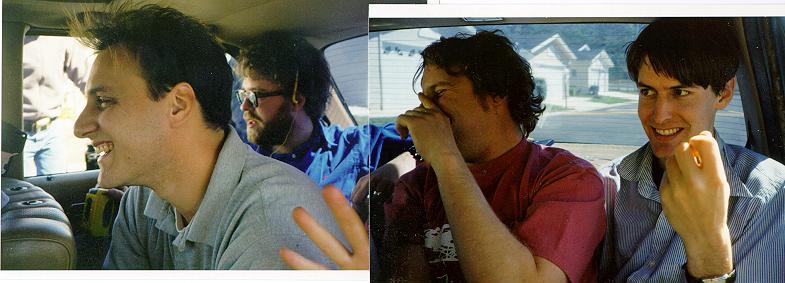 “Don’t waste your precious breath explaining that you are worthwhile.”
“Don’t waste your precious breath explaining that you are worthwhile.”Pavement are the greatest garage band of all time. It's a bold statement to make, and it's probably not true, but I want to make it anyway.
Initially comprised of Steven Malkmus (SM) and his buddy Scott Kannberg (later known as Spiral Stairs) in the very, very late '80s, the band released early EP with titles like
Slay Tracks (1933-1969) and
Perfect Sound Forever. They were recorded by the basically incompetent and insane Gary Young, who "engineered" and "played drums" on the band's debut album,
Slanted and Enchanted. Still, it was this ostensibly unbearable combination of obnoxious slackerdom and erratic hippie nonsense that sired a sound that would inspire a big pile of teenage rawk bands in the next decade-and-a-half.
A word on my decision to use the distinction "garage rock." Pavement is garage rock because it was recorded by suburban kids in a garage. It's about as simple as that, and any other labels, amusing as they may be, are basically irrelevant. Drawing on the scatterbrained, shambolic aesthetic of bands like The Fall and coupling it with the drama of Echo & the Bunnymen, Malkmus wrote the kind of unbelievably catchy songs that bounce around in your head like quarters in a washing machine.
Anyway, this is the first of what will invariably be a series of posts on Pavement, the best garage band ever. Say what you will about their musicianship, this is a band that could really
play. You can argue about whether ol' Gary Young was a better drummer than Steve West (he wasn't), or whether Bob Nastanovich is really a necessary part of the band (he is), but at the end of the day, Pavement are just what they set out to be: a bunch of brainy loser-types playing gloriously rudimentary rock for a bunch of other brainy, if utterly useless, loser-types.
Okay, that's an exaggeration to some extent, but really, Pavement is all about exaggeration. It's the heart of garage rock, finding a little bit of humor or grasping for some meaning in the mundane pointlessness of suburban life. It's just a series of attempts, successful or unsuccessful, to make something out of nothing.
Or something like that, anyway.
Now listen here:
"Stereo" - Live @ Shepherd's Bush, UK ('97)




